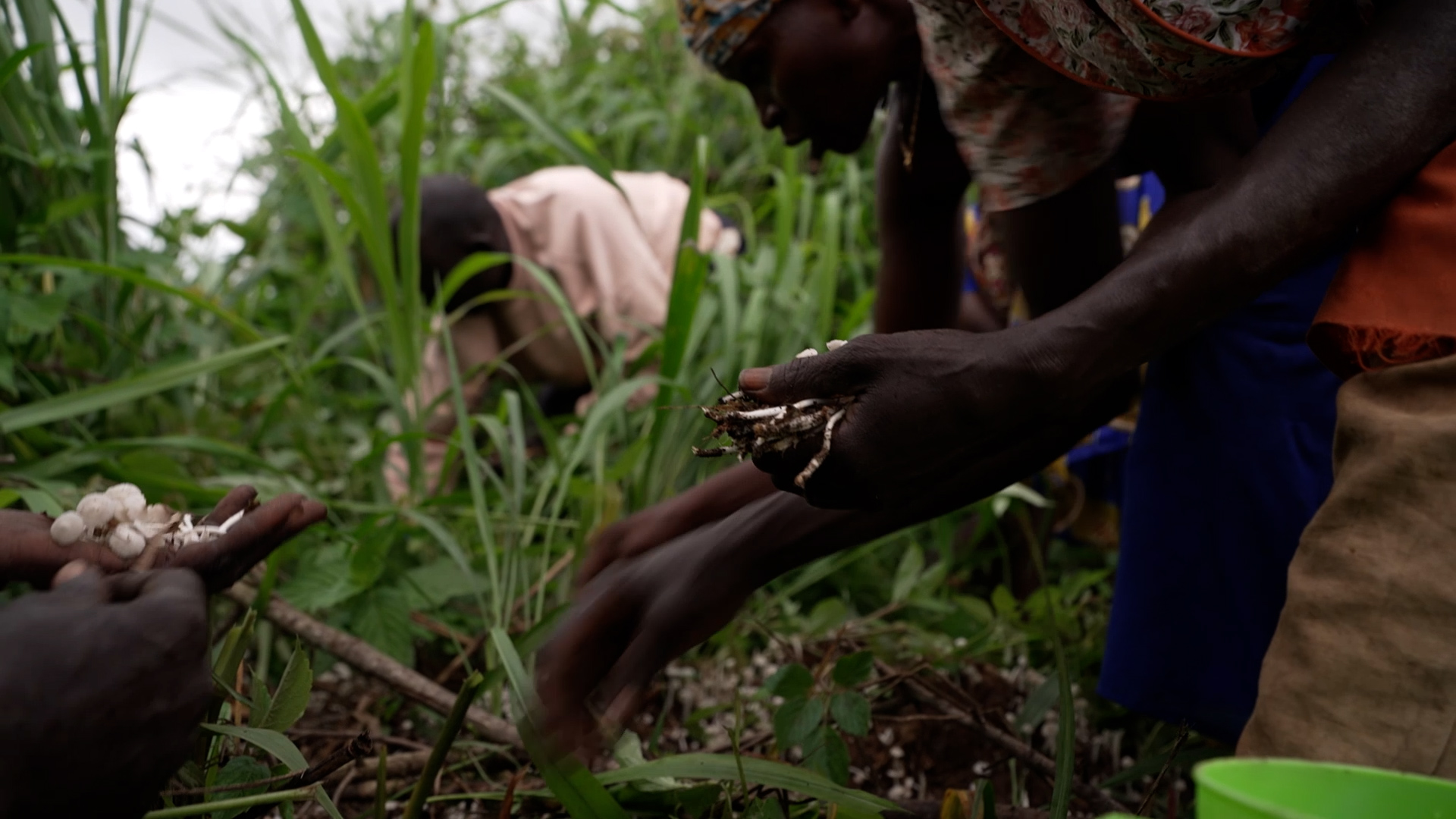Families hit by conflict in South Sudan find safety in Sudan
Families hit by conflict in South Sudan find safety in Sudan

WHITE NILE STATE, Sudan - An increasing number of South Sudanese affected by the conflict in their country and worsening food security are making the hard journey to the country’s northern border and crossing to Sudan by foot, often leaving loved ones behind.
Forty-five-year old Ezekiel* now lives in Al Waral, one of six refugee sites on the western bank of the White Nile River. He is accompanied by his mother, Aywein, 65, and his two children, Patrick and Pasonta.
Ezekiel recounts his troubles which started after gunmen stole his remaining cows near his village in Upper Nile State, leaving him without his main livelihood and limited options to survive. He was also scared of the increased “frequency of fighter jets and the repeated sound of heavy machinery”.
He decided to leave. “I had to pawn my small parcel of land to get money for the trip to Sudan with my family,” he said. He hired a tractor driver to take them to Sudan’s border expecting to be there in three hours. Instead, he was left in the middle of nowhere and had to walk for three days to the border.
“It was very painful to separate the kids from their mother.”
His wife Achewil refused to leave South Sudan, so Ezekiel made the difficult decision to go on without her in hope that the family can be reunited one day if she joins him in Sudan.
“It was very painful to separate the kids from their mother,” he said, visibly upset.
Ezekiel’s mother, Aywein, takes care of her grandchildren. She prepared simple food on the way and said two small jerry cans of water helped to keep them alive during the journey.
When Ezekiel arrived at sunset at Sudan’s El Maganis entry point, one of border’s main reception areas in White Nile, he was relieved to receive assistance from the Sudanese Red Crescent Society.
He recalled receiving a meal and some sleeping mats and blankets. He spent the night with his family at the border and was brought in a truck next morning to Al Waral refugee site.
“We were really exhausted and we slept like never before,” he explained.
Ezekiel and his family join some 20,000 other South Sudanese refugees in Al Waral site, and over 130,000 refugees in White Nile State.
He is anxious about the future. “I am a farmer and cow breeder. I don’t know what I am going to do for living in Sudan. I have to find my way here and search for work to feed my family,” he said.
“I see my mother in my dreams."
His immediate priority was to find a place in school for his two children, saying “education is their weapon for the future, not guns.”
His 10-year-old daughter is also afraid of the future and remembers the many things she left behind in South Sudan. “I miss my mother, my green school, my happy times with cousins and many other things,” she said.
“I see my mother in my dreams, cleaning the yard of our home, and think of her when I am awake.” She longs for the day when she can see her again. Her seven-year-old brother can only smile timidly clinging to his father and grandmother.
With his family torn apart by circumstances beyond his control, Ezekiel said he will be strong and focus on the future of his family.
South Sudanese refugees in Sudan have been seeking out old neighbours and friends. They often make contact with old friends before they even seek assistance from the camps or humanitarian agencies.
Some are fortunate to reunite with family in Sudan.

Ahmed Khairy, who works as a camp manager with the Sudanese Red Crescent Society in Al Waral says every day many of the site’s residents wait for new arrivals and ask about their family members back home who went missing or were left behind.
“It is amazing and touching to see when new arrivals manage to reunite with family members,” he added, saying that it makes his work all that more meaningful.
The outflow of people from South Sudan has been steadily growing with over 80,000 new arrivals in Sudan in the first three months of 2017.
The number of new arrivals has surpassed expectations, signalling a likely worsening situation in South Sudan. UNHCR’s Representative in Sudan, Noriko Yoshida, appealed to the international community to continue its support to Sudan for its refugee emergency.
However, she also said: “Ultimately, there needs to be a solution in South Sudan, so that people do not have to flee to neighbouring countries.”
Yoshida expressed her gratitude for Sudan’s continued generosity in receiving refugees and keeping its border open. Some 380,000 South Sudanese refugees have arrived since December 2013 in Sudan. The majority of the new arrivals are women and children.
UNHCR and its partners have appealed for USD 166 million from international donors to help refugees and host communities in Sudan. As of March 2017 less than 10% of the funds have been received. The appeal amount is also being revised upwards in the coming weeks.
*Names in the story have been changed.









